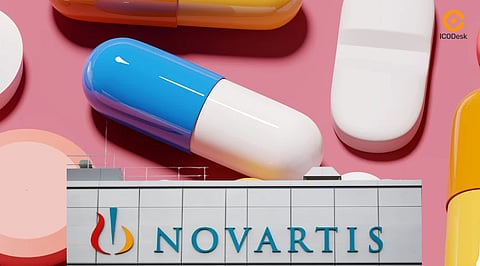

The Indian Patent Office (IPO) has decided to revoke the patent granted to Novartis for its cardiac drugs, marking a major setback for the Swiss firm. The announcement came on September 12, 2025, when it was determined that the drug lacked sufficient novelty and inventive step to be considered patentable.
Vymada (known internationally as Entresto), a combination of sacubitril and valsartan, is used worldwide for heart failure and hypertension, and had global sales of $7.8 billion last year.
The verdict thus opened the gates for Indian companies, allowing them to launch cheaper generics and drastically reduce treatment costs for patients. The decision further strengthens India's very strict stance on evergreening of patents and resolutely takes the side of affordable life-saving medicines.
Vymada is a combination of sacubitril and valsartan and is commonly prescribed for hypertension and heart failure. It accounted for $7.8 billion in sales worldwide at Novartis last year.
But the patent has been under dispute in India, with local drug companies fighting it because it is violating Section 3(d) of the Indian Patents Act, which prohibits ‘evergreening’—a method of getting patents on slight changes to existing drugs to prolong exclusivity.
The IPO decision highlighted that Novartis did not prove any evident therapeutic benefit of its so-called "supramolecular complex" compared to the current formulations. The order added that no experimental evidence, comparative data, or technical justification were furnished to support any improvement in efficacy.
Patent No. 414518 was, therefore, revoked under several sections of the Patents Act, 1970.
Will Generics Replace Novartis’ Vymada?
The decision is likely to have significant consequences for the Indian pharmaceutical industry. The door is now open to generic producers to make and sell forms of Vymada, which could lower the price of treatment for heart patients numbering in the millions.
The initiative aligns with India's efforts to make essential drugs more affordable and accessible.
The move has been celebrated by several stakeholders, including healthcare activists and local pharmaceutical firms, who perceive it as a step toward fostering equitable access to life-saving medicines.
Nevertheless, it also highlights the continuing international debate on patent rights, innovation, and public health priorities.